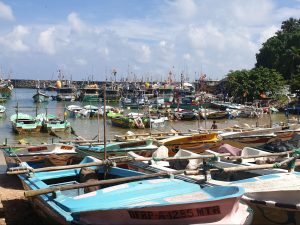
To better understand the pole-and-line fishers in Sri Lanka and their direct communities’ needs, Ibrahim Nadheeh, IPNLF Senior Fisheries Research Officer, embarked on a journey to the heart of Matara District, Sri Lanka. His expedition led him to the Suduwella Fisheries Harbour, where amidst the salty breeze and the creaking of wooden vessels, Nadheeh encountered the unsung heroes of the sea – the pole-and-line fishers. A vibrant community of 201 individuals from the direct region ply their trade across 86 boats; some go out for one day only, while others spend multiple days at sea. Theirs is a story of resilience, as they sustainably harvest from the ocean, anchoring the socio-economic fabric of their coastal abode.
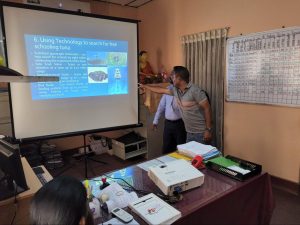
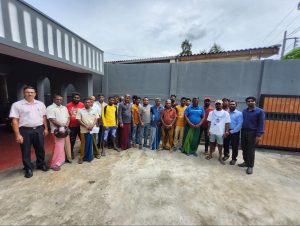
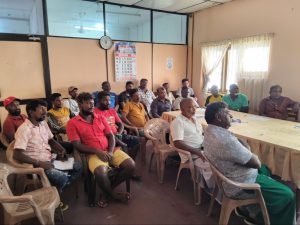
Nadheeh’s research journey brought him to the serene shores of Trincomalee District: 320 passionate pole-and-line fishers are trying to sustain themselves in this idyllic Eastern province. Through honest interviews and expert discussions, he uncovered the nuances of the Sri Lankan craft and the interdependent relationship between their livelihoods and the ocean. Nadheeh orchestrated the Skipper Workshop for Trincomalee’s 24 pole-and-line fishers, in which beneficial knowledge and best practices were shared from pole-and-line fisheries worldwide, and current Sri Lankan fishing practices, challenges, and opportunities in their fishery were discussed. Topics included sustainable bait fishing methods, handling and storage, effective technology in searching for tuna schools, harvest handling techniques, bycatch mitigation and safe handling of them and release, gear loss and pollution mitigation.
On the south coast of Sri Lanka, fisherwomen are highly involved in fish processing activities. Therefore, Nadheeh visited the quaint fish-drying yards of Kottegoda, one of the yards run by a local family. Here, they practised the age-old tradition of crafting “Maldive’ fish” unfolded, echoing the practices of distant Maldives, except they don’t use the broth left after the cooking, which Maldivians use to make the fish paste called ‘Rihaakuru’.
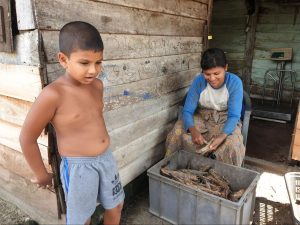
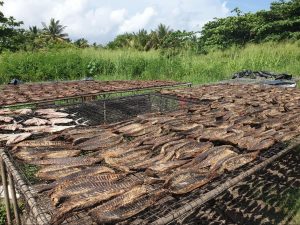
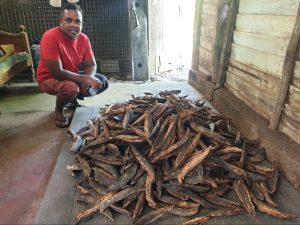
At Koggala, a small coastal town in the south coast district of Galle, Nadheeh came across a spectacle as ancient as time: traditional stilt fishing. This unique one-by-one fishing style has been practised for centuries by local fishers and only in Sri Lanka. Surrounded by the tranquil lull of the ocean, fishers perched upon wooden poles, casting their lines with precision to catch small fish, such as herrings and mackerel. Amidst the age-old rituals, a modern phenomenon emerged: tourism. Interestingly, this fishery has become an attraction for tourists, where the fishers pose for a picture and get some additional income.
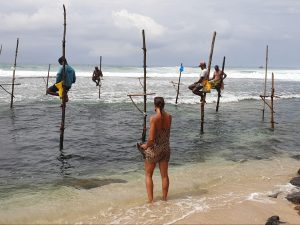
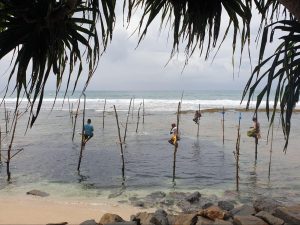
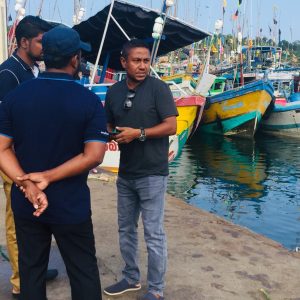 The livelihoods of the coastal communities in Sri Lanka are intrinsically linked to the ocean. Through Nadheeh’s many conversations with these fishing communities – women traders, processors, boat owners and the fishers that earn their daily living out at sea – was the alignment of their message about the need for protection. They feel threatened by large industrial fisheries with which they compete for scarce resources and are not always provided equal opportunities to compete fairly in the marketplace. They experience the repercussions of overfishing on the high seas, climate change, and its far-reaching consequences on the ocean and, thus, their livelihoods daily.
The livelihoods of the coastal communities in Sri Lanka are intrinsically linked to the ocean. Through Nadheeh’s many conversations with these fishing communities – women traders, processors, boat owners and the fishers that earn their daily living out at sea – was the alignment of their message about the need for protection. They feel threatened by large industrial fisheries with which they compete for scarce resources and are not always provided equal opportunities to compete fairly in the marketplace. They experience the repercussions of overfishing on the high seas, climate change, and its far-reaching consequences on the ocean and, thus, their livelihoods daily.
When we talk about sustainable fisheries, this livelihood aspect needs to be addressed. The 2030 Agenda and its Sustainable Development Goals (SDGs) are focused on poverty alleviation, sustainable resource use and improved livelihoods for all. It provides a clear pathway and targets for governments and the business community to ensure sustainable development that ‘leaves no one behind’.
With these research trips, aimed at exploring to expand our geographic focus, we are looking at potentially rolling out new projects in these countries in line with the support they have received under the Common Oceans Tuna Project*, which aims to ensure that tunas are fished more sustainably by mobilising a global partnership in support of responsible tuna fisheries management and the conservation of biodiversity in the ocean areas beyond national jurisdiction (ABNJ).
By organising informative workshops, gathering valuable insights, and sharing best practices and training programs from experts worldwide, these fishers are equipped with the necessary support and market access to succeed in the fiercely competitive global seafood industry. Through its extensive network of members engaged in global seafood supply chains, IPNLF can provide incentives to reward fisher improvements, granting them access to premium markets that can effectively enhance the financial security and livelihoods of our local tuna fishing communities. This aspect of our work is most important – the primary beneficiaries of our work are the small-scale tuna fishers catching tuna one at a time.
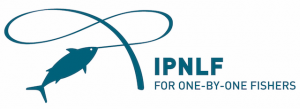
ABOUT COMMON OCEANS
The Common Oceans Tuna project brings together a global partnership dedicated to sustainable tuna fisheries aiming to advance responsible tuna fisheries management and biodiversity conservation. Funded by the Global Environment Facility (GEF) and led by the United Nations Food and Agriculture Organisation (FAO), it works in collaboration with five regional tuna fisheries management organisations, national agencies and intergovernmental organisations, and initiatives, the private sector, civil society and academia.